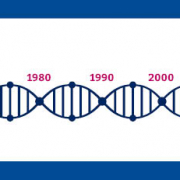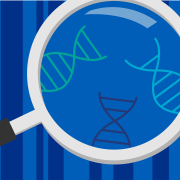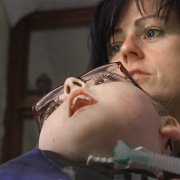The 100,000 Genomes Project and the DDD study: A recap
We look at the background, aims and achievements of two of the most influential genomics studies of the last 15 years
Since 2011, two ground-breaking national projects have been set up with the aim of changing the way we think about the role that genomics can play in healthcare. The Deciphering Developmental Disorders (DDD) study, which uses microarray and trio exome sequencing to investigate the genetic causes of severe undiagnosed developmental disorders in children, began recruiting in 2011 and completed analysis in 2022, though data from patients who remain undiagnosed is regularly reanalysed in case new research can help find a diagnosis. The 100,000 Genomes Project, which is sequencing 100,000 genomes from NHS patients with rare disease or cancer, began recruiting in 2013 and is still analysing results.
Who is behind each study?
The DDD study was set up as a partnership between the NHS regional genetic services (now part of the NHS Genomic Medicine Service) and the Wellcome Sanger Institute, a research centre in Cambridge.
The 100,0000 Genomes Project is the flagship initiative of Genomics England, a government-owned company that was set up specifically to run the project. New genomic medicine centres were set up within the NHS to recruit patients and take samples for sequencing, which was conducted by a private company called Illumina.
Who are the participants?
Each study recruited a different type of patient, though there was some potential for overlap.
The DDD study has focused solely on children with developmental disorders that doctors believed were likely genetic in origin but had not been able to diagnose using the standard genetic tests available at the time. Among the cohort of over 12,000 children are patients with likely ultra-rare or previously undocumented disorders.
The 100,000 Genomes Project recruited both adult and child patients with rare diseases and certain cancers. As part of the wider project, a pilot study is being run that has specifically enrolled patients suspected of having one of 190 specified rare conditions.
Overall, over 85,000 participants have had their genomes sequenced as part of the 100,000 Genomes Project, and the rare disease pilot has involved over 2,100 rare disease patients, plus their family members.
How did each study look at its participants’ genomes?
While the 100,000 Genomes Project focused specifically on whole genome sequencing, the DDD study used three types of assays to investigate each participant’s genome: exome sequencing of patients and their parents (where possible), exon-focused array comparative genomic hybridization (aCGH) and genome-wide single-nucleotide polymorphism genotyping of the patient’s DNA.
What benefits have come out of each project?
Aside from providing invaluable diagnoses for patients who had previously searched in vain for answers, both studies have made ground-breaking contributions to our understanding of genomic medicine.
The 100,000 Genomes Project has resulted in the creation of a research platform containing all the project’s deidentified genomic and health data, which can be used by researchers for analysis without allowing direct access to patient records. The platform has even been used as part of the UK’s Covid-19 response.
Meanwhile, a key component of the DDD study was the DECIPHER platform, which allows clinicians to access information about rare genetic variants and associated clinical features. The platform has played a crucial part in finding diagnoses for patients with genetic changes so rare that there may only be a handful of affected people in the world. It is now used widely within the clinical community, and is helping develop our knowledge of ultra-rare genetic variants.
Finally, both studies have contributed to the development of what is now the NHS Genomic Medicine Service, a crucial player in the delivery of the NHS Long Term Plan and the service responsible for providing consistent and equitable access to genomic medicine to the country’s 55 million people.
–









